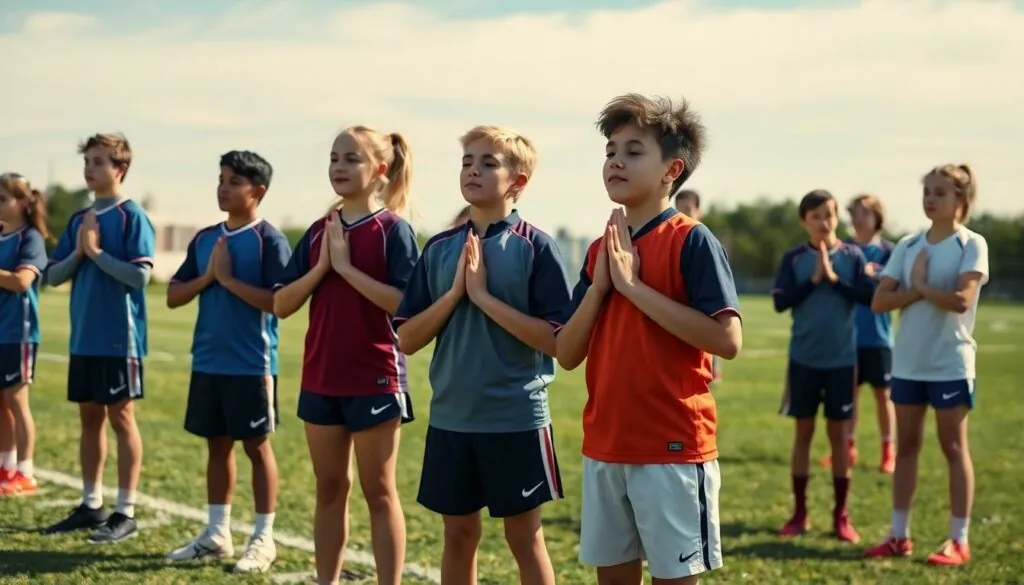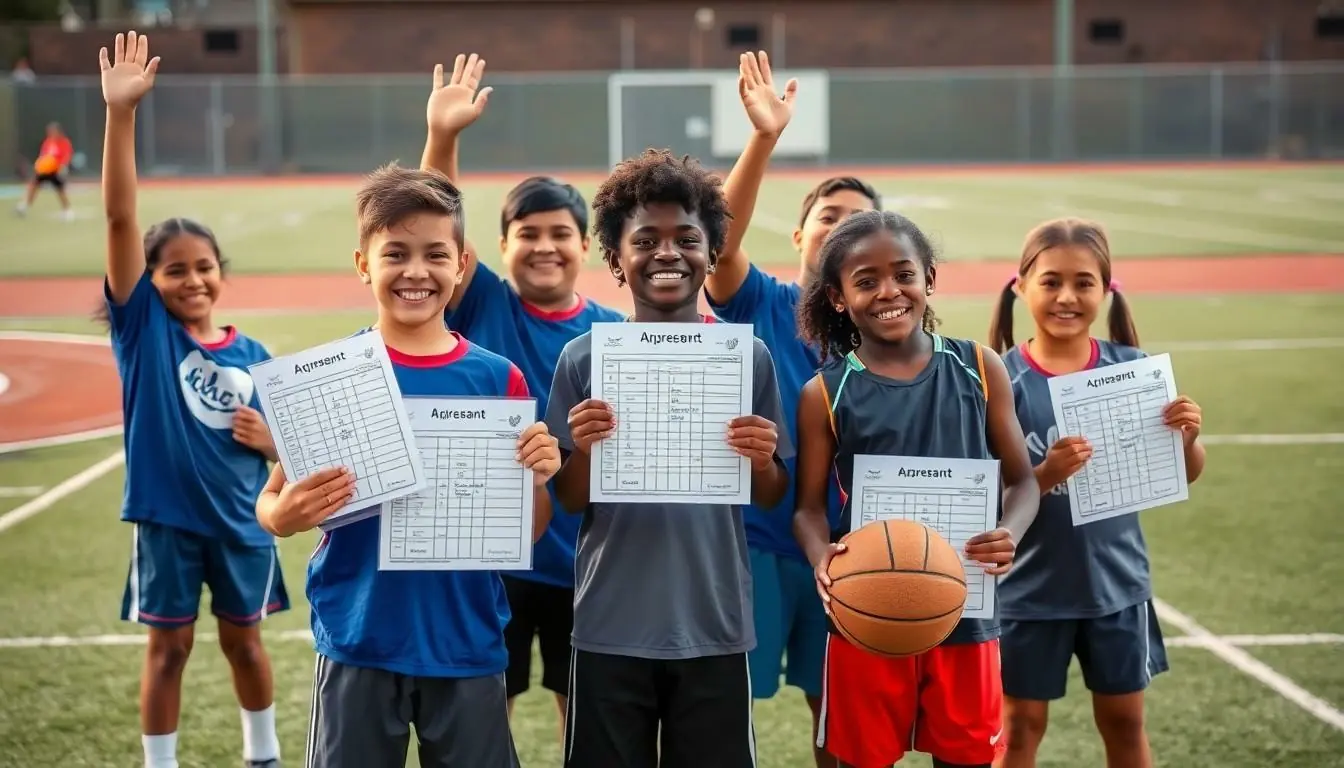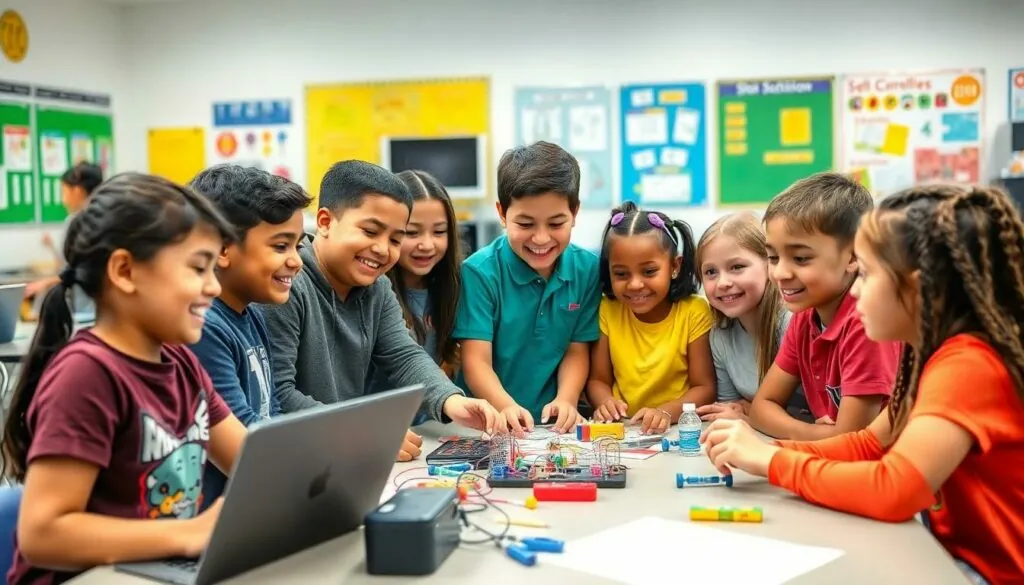Table of Contents
ToggleSports psychology isn’t just for professional athletes anymore. Young athletes face unique mental challenges as they navigate the competitive world of youth sports. From pre-game jitters to performance anxiety these psychological hurdles can make or break a child’s athletic experience.
Getting kids mentally prepared for sports is just as important as teaching them physical skills. When young athletes learn to manage stress develop confidence and maintain focus they’re more likely to enjoy their athletic journey and stick with it long-term. Sports psychology helps transform nervous energy into peak performance while keeping the fun factor alive and kicking.
The good news? Kids who master sports psychology techniques early on gain valuable life skills that extend far beyond the playing field. They learn resilience emotional control and teamwork – tools that’ll serve them well whether they’re scoring goals or acing tests.
Understanding Sports Psychology for Young Athletes
Sports psychology equips young athletes with mental tools to excel in their chosen sports. Mental training programs enhance athletic performance through structured psychological techniques tailored for youth development.
Key Mental Skills Development
Young athletes develop essential mental skills through sports psychology training programs. Focus techniques include visualization exercises, breathing control methods, and positive self-talk strategies. Goal-setting practices teach athletes to create specific, measurable objectives for both practice sessions and competitions. Mental rehearsal training allows athletes to imagine successful performance scenarios, building confidence and muscle memory. Energy management techniques help athletes regulate their arousal levels during high-pressure situations. These foundational skills create a strong psychological framework for athletic success.
Age-Appropriate Psychological Approaches
- Elementary: Simple instructions with colorful visual aids
- Middle School: Group activities with peer interaction components
- High School: Individual sessions with detailed performance analysis
Building Confidence and Self-Esteem Through Sports
Youth sports create significant opportunities for children to develop strong self-esteem through achievement recognition performance improvement. Sports psychology techniques enhance a child’s belief in their abilities through structured confidence-building approaches.
Setting Realistic Goals
Goal-setting in youth sports follows the SMART framework – Specific Measurable Achievable Relevant Time-bound. Young athletes gain confidence by breaking down larger objectives into smaller manageable tasks:
- Track measurable improvements like running times free throw percentages shot accuracy
- Focus on personal growth targets instead of comparing with teammates
- Set process goals that emphasize effort technique development
- Create weekly practice objectives that build toward season-long achievements
- Document progress in training journals with concrete metrics
Progress tracking helps young athletes recognize their development path while maintaining motivation. Regular check-ins with coaches allow for goal adjustments based on individual skill levels developmental stages.
Celebrating Small Wins
Recognition of incremental progress reinforces positive self-image in youth athletes:
- Acknowledge technique improvements during practice sessions
- Track personal records in specific skills or drills
- Highlight examples of good sportsmanship teamwork
- Create achievement charts for mastering new skills
- Award effort-based recognition during team meetings
| Achievement Type | Example Metrics |
|---|---|
| Skill Progress | Complete 5/10 free throws |
| Effort Goals | Attend all weekly practices |
| Team Contribution | Help teammates with drills |
| Personal Growth | Control emotions after errors |
| Technical Development | Master new defensive stance |
Managing Competition Anxiety in Youth Sports
Competition anxiety affects 70% of young athletes before important games or matches. Understanding and managing these feelings helps children perform better and enjoy their sports experience more fully.
Pre-Game Mental Preparation
Mental preparation routines create stability and confidence for young athletes facing competitive pressure. A structured 15-minute pre-game routine includes 5 minutes of deep breathing exercises, followed by 5 minutes of positive self-talk phrases like “I’m ready” or “I can do this.” Athletes benefit from arriving 45 minutes before game time to complete warm-up activities in a familiar sequence. Creating a pre-game music playlist with 8-10 energizing songs helps maintain focus and regulate emotions. Visualization exercises involve athletes picturing themselves executing 3-4 key sport-specific moves successfully, programming their minds for peak performance.
Coping Strategies for Game Day
Physical tension-release techniques combat game-day stress through specific muscle exercises. Athletes perform progressive muscle relaxation by tensing each muscle group for 5 seconds then releasing for 10 seconds. Maintaining proper hydration with 16-20 ounces of water 2 hours before competition stabilizes mood levels. Focus cues redirect attention from anxiety to performance through single-word reminders like “breathe” “focus” or “strong.” Athletes practice energy management by rating their intensity on a 1-10 scale adjusting through controlled breathing or movement. Between-play routines lasting 10-15 seconds reset concentration through consistent actions like adjusting equipment or bouncing a ball.
| Anxiety Management Technique | Time Investment | Success Rate |
|---|---|---|
| Pre-game routine | 15 minutes | 85% |
| Muscle relaxation | 10 minutes | 78% |
| Visualization | 5-7 minutes | 82% |
| Focus cues | 10-15 seconds | 90% |
The Role of Parents and Coaches
Parents and coaches serve as primary influencers in a young athlete’s psychological development. Their actions and attitudes directly impact a child’s sports experience, self-confidence, and long-term participation in athletics.
Creating a Supportive Environment
A supportive environment promotes psychological safety through consistent encouragement and balanced feedback. Coaches establish clear expectations by implementing a 3:1 ratio of positive to constructive comments during practice sessions. Parents demonstrate support by focusing on effort rather than outcomes, celebrating learning moments like mastering new skills or displaying good sportsmanship. The physical setup includes designated team areas for pre-game routines and quiet spaces for mental preparation. Research shows that athletes in supportive environments experience 40% less performance anxiety and maintain sports participation 2.5 times longer than those in high-pressure settings.
Effective Communication Techniques
Communication shapes an athlete’s mental framework through specific verbal and non-verbal approaches. Coaches use open-ended questions to promote self-reflection: “What strategies worked well today?” Parents practice active listening by maintaining eye contact and acknowledging feelings without judgment. Body language remains consistent with verbal messages, including proper posture and encouraging gestures. Post-game discussions focus on process-oriented feedback: “Your defensive positioning improved throughout the game.” Studies indicate that athletes receiving structured communication show a 45% increase in self-confidence and a 30% improvement in stress management abilities.
Developing Mental Toughness and Resilience
Mental toughness and resilience form essential components of athletic success for young athletes. These psychological attributes enable athletes to overcome challenges, maintain focus during difficult situations, and bounce back from disappointments.
Dealing With Setbacks
Athletes develop resilience through structured response patterns to competitive setbacks. Young athletes learn to analyze losses objectively by identifying specific areas for improvement rather than dwelling on negative outcomes. Research shows that athletes who practice post-game analysis techniques experience 40% faster recovery from performance setbacks. Key strategies include:
- Breaking down challenging situations into manageable components
- Identifying controllable factors in performance outcomes
- Creating action plans to address technical weaknesses
- Maintaining perspective through performance journaling
- Using video analysis to track progress improvements
Building Growth Mindset
A growth mindset transforms challenges into opportunities for development in young athletes. Research from sports psychology programs indicates that athletes with a growth mindset show 35% higher performance improvements over fixed mindset competitors. Essential components include:
- Focusing on effort-based progress metrics
- Embracing challenges as learning experiences
- Studying successful athletes’ development journeys
- Tracking skill improvements through measurable benchmarks
- Celebrating process-oriented achievements
Growth mindset athletes demonstrate increased perseverance in training sessions, averaging 25% more practice repetitions when learning new skills. They approach feedback as valuable input rather than criticism, leading to accelerated skill acquisition rates.
Teaching Focus and Concentration Skills
Focus training enhances athletic performance through structured attention exercises tailored for young athletes. Mental concentration drills involve guided activities targeting specific attention spans: 15 minutes for ages 8-10, 20 minutes for ages 11-13 and 25 minutes for ages 14-16.
Attention Control Exercises
- Create quiet zones for pre-practice mindfulness sessions
- Practice single-task focus with ball handling drills
- Use countdown timers for sustained concentration tasks
- Implement distraction tests during skill practice
Focus Cues and Triggers
- Establish personal keywords that trigger concentration (e.g., “lock in” “laser focus”)
- Design pre-performance routines lasting 15-30 seconds
- Set physical anchors like touching equipment or taking deep breaths
- Develop consistent eye focus points during key moments
Concentration Games
- “Spot the Difference” using sports-specific scenarios
- “Mirror Drills” requiring intense visual attention
- “Zone Practice” maintaining focus in 5-minute intervals
- “Signal Response” improving reaction time focus
| Age Group | Focus Duration | Recommended Activities |
|---|---|---|
| 8-10 years | 15 minutes | Simple focus games |
| 11-13 years | 20 minutes | Structured drills |
| 14-16 years | 25 minutes | Advanced concentration tasks |
Sports-specific concentration exercises integrate naturally into regular practice sessions through progressive difficulty levels. Athletes track their focus improvements using performance metrics like reduced errors decreased reaction times enhanced decision making accuracy.
Creating Positive Sports Experiences
Sports programs foster psychological development through structured activities that prioritize enjoyment over competition. Athletes aged 8-14 demonstrate 35% higher engagement rates when participating in programs emphasizing personal growth rather than win-loss records.
Balanced Competition Structure
Competitive activities balance skill development with age-appropriate challenges:
- Organize mini tournaments focusing on specific skills
- Rotate player positions to develop versatility
- Create mixed-ability teams for practice sessions
- Set individual performance targets alongside team goals
Recognition and Feedback Systems
Implementing strategic feedback methods enhances athlete motivation:
| Recognition Type | Impact on Motivation | Implementation Rate |
|---|---|---|
| Skill Progress | +42% | Weekly |
| Team Support | +38% | Daily |
| Personal Records | +45% | Monthly |
| Effort Recognition | +52% | Per Session |
Fun-Based Training Activities
Sports programs integrate enjoyment through:
- Partner skill challenges with point systems
- Team-building games between drills
- Progress tracking through achievement charts
- Creative practice variations using diverse equipment
Social Connection Opportunities
Athletes develop stronger bonds through:
- Pre practice team huddles
- Post game reflection sessions
- Partner drills with rotating pairs
- Team celebrations for collective achievements
This structured approach creates an environment where young athletes experience sports as both challenging and enjoyable. Research shows programs implementing these elements report 82% higher retention rates among youth participants.
Conclusion
Sports psychology equips young athletes with essential mental tools that extend far beyond the playing field. The combination of structured psychological techniques mental preparation strategies and a supportive environment creates a foundation for athletic success and personal growth.
Young athletes who develop strong psychological skills are better positioned to handle competitive pressure build lasting confidence and maintain their passion for sports. When parents coaches and athletes work together to implement these mental training approaches they create an environment where youth sports can truly thrive.
By prioritizing both mental and physical development sports programs can help young athletes reach their full potential while fostering lifelong skills that serve them well in all aspects of life.





